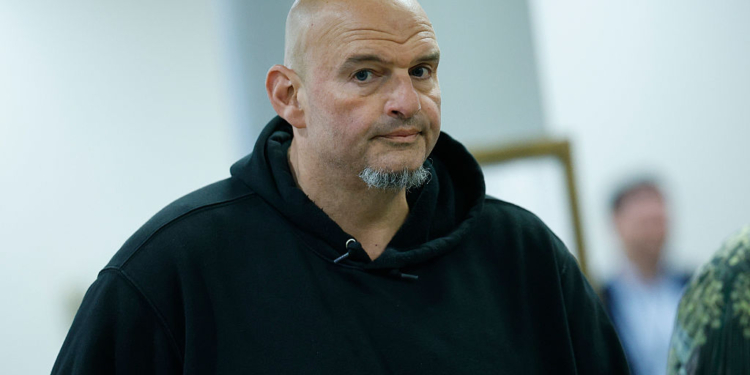Senator John Fetterman from Pennsylvania has expressed his readiness to support a significant change in Senate procedures to resolve the ongoing federal government shutdown, which has now lasted for 21 days. During a recent press conference, Fetterman indicated he may back efforts by Republicans to eliminate the Senate filibuster for a specific funding measure. This change would enable a House-passed funding bill to pass the Senate with a simple majority vote.
Fetterman highlighted the pressing issue surrounding the federal Supplemental Nutrition Assistance Program (SNAP), which is reportedly running out of funds. He stated, “There are no winners here. It’s not getting better every day. People are going to start to get really hungry, and I’ve been fully committed to fund SNAP and open up the government.” He also noted that the U.S. Capitol Police are not receiving their pay during the shutdown.
The senator condemned the situation as “bad political theater,” urging for an immediate resolution. When asked about supporting Republicans in their proposal to “nuke” the filibuster, Fetterman was clear: “Carve it out for that, absolutely.” He emphasized that Democrats campaigned on removing such procedural barriers and now find themselves in a position to act.
Fetterman further criticized the ongoing standoff, comparing it to the film Groundhog Day. He remarked, “It’s ‘Groundhog Day’ and it’s not entertaining. That’s a great movie, but this is embarrassing.” His comments reflect growing frustration among lawmakers and constituents alike as the shutdown continues with no resolution in sight.
While some Democrats may hesitate to alter the filibuster, Fetterman’s stance indicates a willingness to prioritize immediate funding needs over procedural norms. He stated, “I don’t want to hear any Democrat clutching their pearls about the filibuster. We all ran on it.”
As the shutdown drags on, the stakes for millions of Americans relying on government programs become increasingly critical. The call for action from figures like Fetterman may signal a shift in how Congress approaches funding negotiations in the future, especially in light of the potential impacts on vital services like SNAP.
